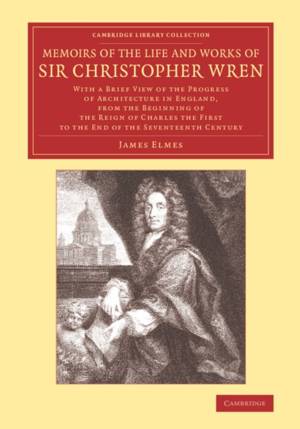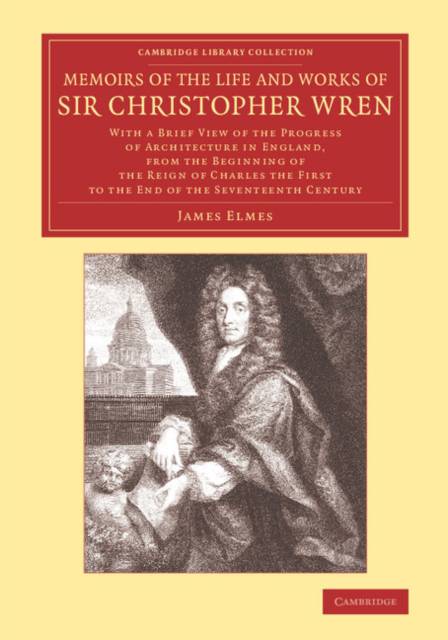
- Afhalen na 1 uur in een winkel met voorraad
- Gratis thuislevering in België vanaf € 30
- Ruim aanbod met 7 miljoen producten
- Afhalen na 1 uur in een winkel met voorraad
- Gratis thuislevering in België vanaf € 30
- Ruim aanbod met 7 miljoen producten
Zoeken
Memoirs of the Life and Works of Sir Christopher Wren
With a Brief View of the Progress of Architecture in England, from the Beginning of the Reign of Charles the First to the End of the Seventeenth Century
James Elmes
€ 146,95
+ 293 punten
Omschrijving
James Elmes (1782-1862), the son of a builder, trained at the Royal Academy Schools as an architectural designer, but his career encompassed publishing and writing on architecture as well. A friend of Benjamin Robert Haydon and his circle, he was the first publisher (in his Annals of Fine Arts) of Keats' most famous odes. This work - the first biography of Wren - was published in 1823, and is dedicated to the President and Fellows of the Royal Society, of which Wren was a founder member in 1660. Elmes based his work on the so-called 'Parentalia', or notes on the Wren family compiled by his son (also Christopher), and privately printed by his grandson Stephen in 1750. Elmes puts Wren's life and works into the context of the intellectual ferment of Restoration England, and combines the narrative of Wren's life with an architectural commentary on his most important works.
Specificaties
Betrokkenen
- Auteur(s):
- Uitgeverij:
Inhoud
- Aantal bladzijden:
- 744
- Taal:
- Engels
- Reeks:
Eigenschappen
- Productcode (EAN):
- 9781108080798
- Verschijningsdatum:
- 5/03/2015
- Uitvoering:
- Paperback
- Formaat:
- Trade paperback (VS)
- Afmetingen:
- 178 mm x 254 mm
- Gewicht:
- 1265 g

Alleen bij Standaard Boekhandel
+ 293 punten op je klantenkaart van Standaard Boekhandel
Beoordelingen
We publiceren alleen reviews die voldoen aan de voorwaarden voor reviews. Bekijk onze voorwaarden voor reviews.











